Diversity, equity and inclusion (DEI) directives from the Iowa Board of Regents were further implemented when the Faculty Senate approved changing the name of a credit requirement for Iowa State students and lengthening a syllabus statement.
Renaming U.S. Diversity course requirement
The Faculty Senate Academics Affairs Committee initially suggested a name change for a university-wide requirement in response to action taken by the Board of Regents in November.
Students pursuing undergraduate degrees at Iowa State are currently required to take a course that satisfies the U.S. Diversity course requirement. The list of courses include classes such as economics of discrimination, American Indian literature, personal and family finance, religion in America, disability in a diverse society and about 100 other courses.
Tuesday, the Faculty Senate approved renaming “U.S. Diversity” to “U.S. Cultures and Communities” to comply with the regents’ directive.
A vote to amend the name to U.S. Cultural Diversity failed.
The regent-issued directive instructs universities to “Initiate a review of DEI-related general education categories and update category names to accurately reflect the array of options students may select from to satisfy these requirements and ensure a breadth of offerings.”
Sen. Jennifer Schieltz, associate teaching professor in natural resource ecology and management, said the name change does not change learning outcomes or the approved courses.
“This is only a change to the category name, which means that all the good work that Faculty Senate has done over the last couple of years remain intact,” Schieltz said.
Schieltz said the name change “communicates both the intent of the requirement and represents the broad array of course offerings available.”
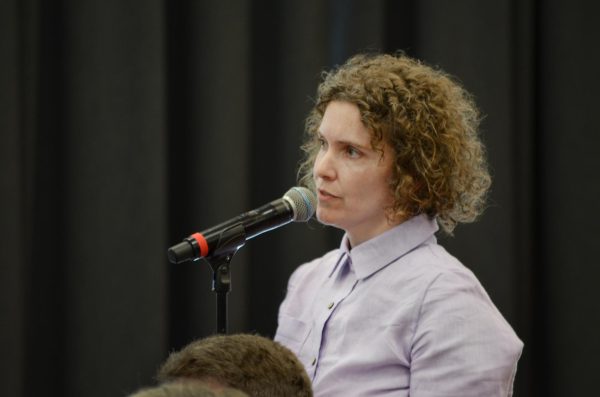
Free expression syllabus statement
Two more sentences have been added to the Free Expression statement, required to be included in the syllabus for every course, and are included to comply with directives from the Board of Regents.
The Free Expression statement includes a university statement to uphold First Amendment protection, academic freedom and fostering an environment for vigorous debate. The statement also includes that students “will not be penalized for the content or viewpoints of their speech as long as student expression in a class context is germane to the subject matter of the class and conveyed in an appropriate manner.”
The statement now will include the following statement: “No employee, student, applicant, or campus visitor is compelled to disclose their pronouns. Anyone may voluntarily disclose their own pronouns.”
During their meeting, the Academic Affairs Committee approved the measure 7-2, and the measure passed the Faculty Senate 38-19.
Sen. Ann Oberhauser, a professor in sociology and criminal justice who teaches women’s and gender studies, said the directive may have been made out of assumptions.
“The directive, or what’s being assumed here, is that we are mandating [students to disclose pronouns] and it’s not voluntary disclosure, which I am offended by,” Oberhauser said. “It’s not the case. We don’t mandate that at all. It’s voluntary.”
Schieltz agreed with Oberhauser, explaining that students are not compelled to disclose pronouns. Schieltz confirmed that what they wanted to communicate is, students are not compelled to do so.
“We’re not asserting that we used to in the past and now are changing what we’re doing,” Schieltz said. “We’re just putting it in language that we don’t compel anyone to do it. I’ll note that I met with multiple staff and faculty on campus who work on human sexuality and pronouns and discussed this with them and they were supportive of this language.”
Student voting on election day
The Faculty Senate voted on a resolution to support student voting in the 2024 general election by altering course delivery on Election Day. The resolution was approved two years ago and received pushback from faculty during the resolution’s first reading, where senators cited concerns of poorly preparing students for a life of civic responsibility.
The resolution, introduced by Sen. Karen Kedrowski, a professor of political science and director of the Carrie Chapman Catt Center for Women and Politics, encourages faculty members to hold classes asynchronously if feasible and refrain from setting due dates for major assignments or administering exams during the one-day ballot-casting period. Kedrowski also called for professors to excuse tardiness or absences from students who miss class to vote.
Kedrowski said the initiative was brought to a vote this month to allow professors the time to design courses for the fall accordingly.
Major and minor business
A minor in applied artificial intelligence was approved in the same meeting. It was introduced after having the second reading waived. The minor will provide “foundational knowledge on the use of AI using low-code or no-code tools available to a wide range of users,” according to the proposal document.
The minor will have two required courses: introduction to applied artificial intelligence and ethical design, use and impact of artificial intelligence. The university is also exploring other available courses for the program.
Approvals for the minor have received zero votes in opposition in the five bodies it has been voted on.
According to Senior Vice President and Provost Jonathan Wickert, the Office of Admissions will be sending an email to every prospective student in the Iowa State undergraduate recruiting pipeline about the new minor.
“I really do believe it’s going to support our students, and in a very competitive marketplace we will be first to market with a minor such as applied AI,” Wickert said.
Citing a more uniform practice with other universities and to make the Iowa State program more competitive, the Faculty Senate waived the second reading on and approved changing the name of the major and minor in apparel, merchandising and design to fashion design and merchandising.
No changes to the program itself or the curriculum are part of the name change.
The name change will take effect in the next catalog, meaning current apparel, merchandising, and design students will keep the name.
The management and entrepreneurship departments in the College of Business have proposed a new certificate in healthcare management.
The 20-hour certificate would include 11 to 12 required credits and eight to nine elective credits.
“The healthcare management certificate will help prepare students to transition from clinical to managerial and leadership roles within healthcare organizations,” according to the program proposal document.
The document also states that the certificate would complement existing health-related programs such as biology, biochemistry, biomedical engineering, dietetics and others.
Term faculty handbook revisions
The Faculty Senate delayed voting on Faculty Handbook changes that lessen restrictions on administrative roles, a term faculty member can hold until the next Faculty Senate meeting April 9.
The change would strike language that previously prohibited term faculty from serving in administrative roles, though Faculty Senate documents state current practice does not reflect this prohibition. The change would also alter how some professors are reviewed and how advancement for term faculty is determined.








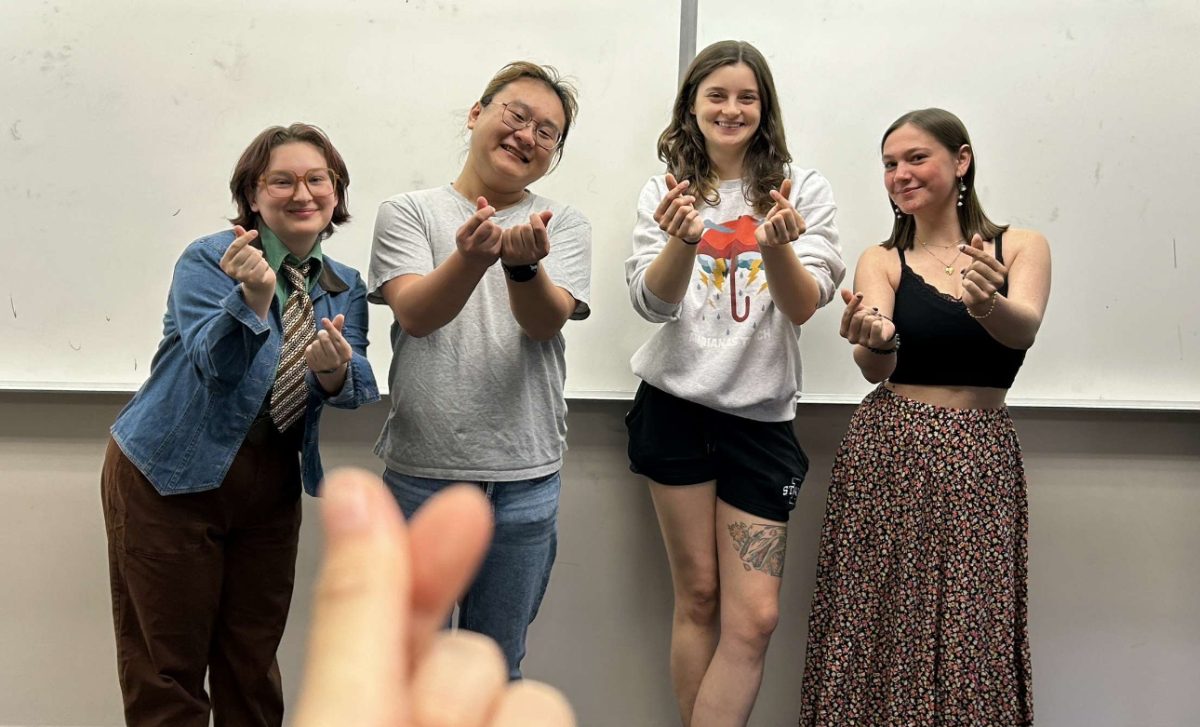

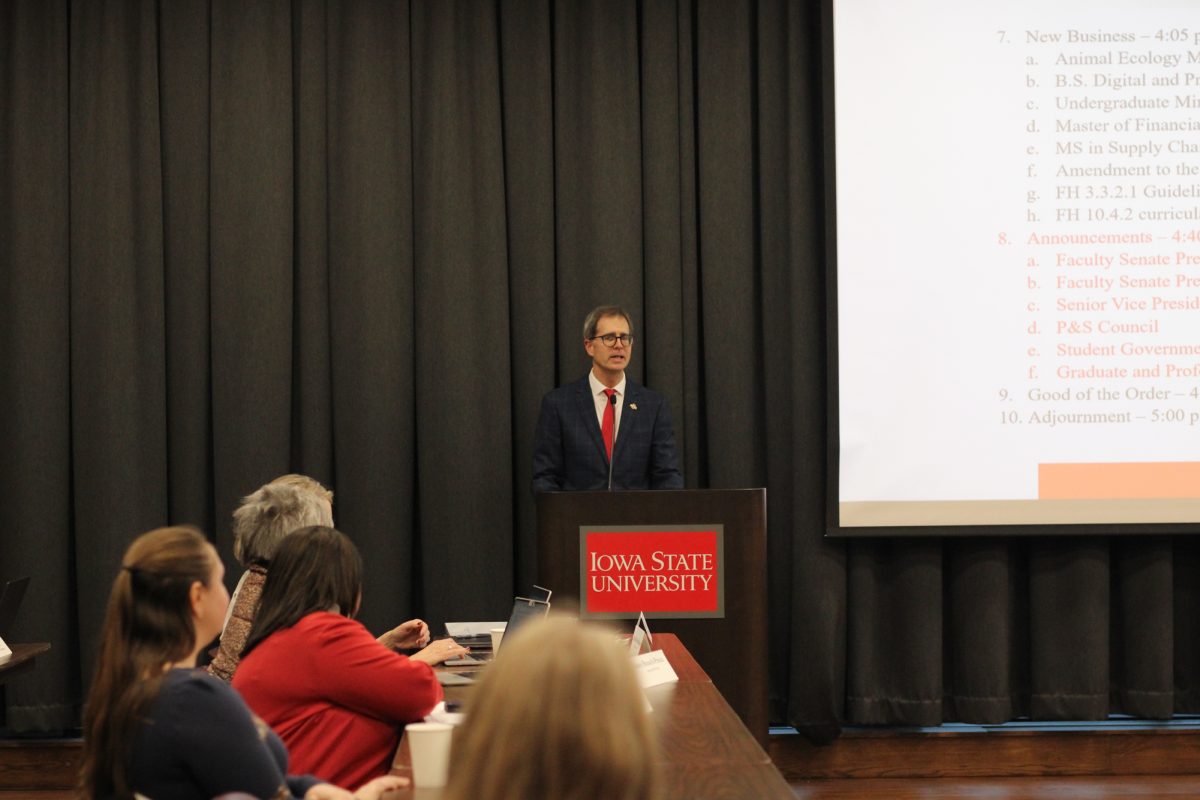

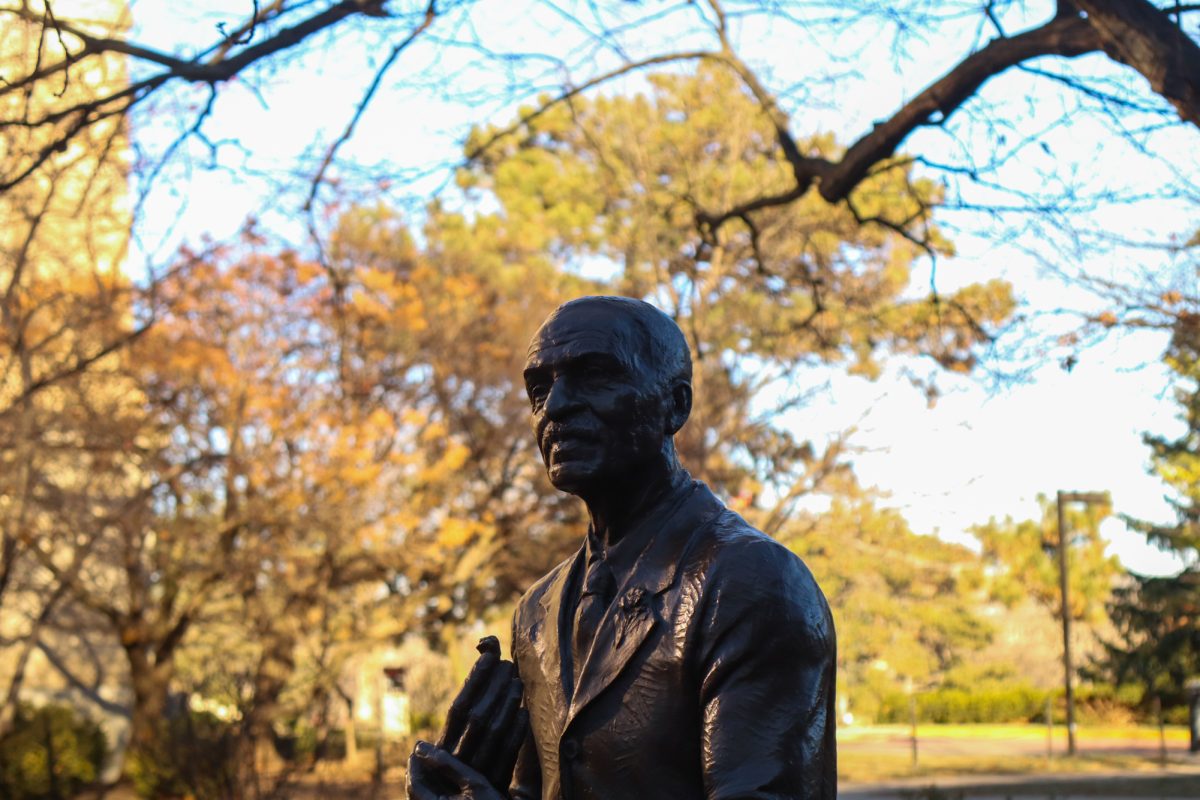

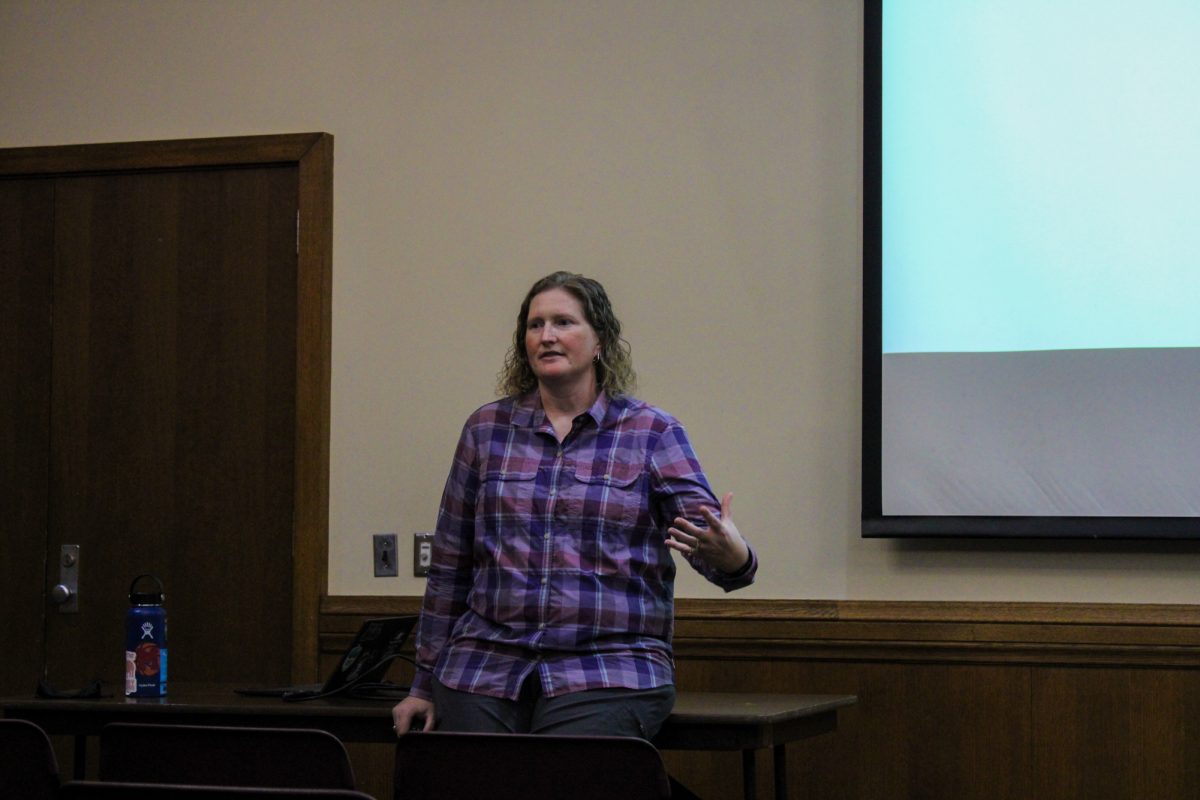






Liz | Mar 20, 2024 at 1:28 pm
use if AI – think all students should read Issac Asimov’s Foundation Series and perhaps follow his 3 rules of AI
change to US cultural and communities, this maybe more appropriate for sociology or anthropology